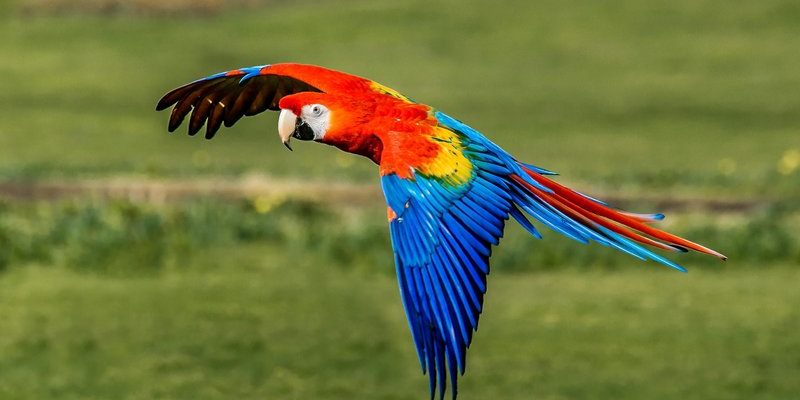
So, why are macaws endangered, and what can be done to help? It’s a mix of habitat loss, poaching, and the illegal pet trade. Think of it as a recipe for disaster, where each ingredient combines to create a dire situation for these birds. In this article, we’ll dive into the current status of macaws, explore the conservation efforts in place, and discuss what you can do to help. Let’s break it down!
Understanding the Macaw Species
Right off the bat, it’s important to know that not all macaws are created equal. There are about 17 different species, ranging from the iconic Blue-and-yellow Macaw to the enchanting Scarlet Macaw. Each has its own unique personality and habitat.
Macaws are usually found in Central and South America, often in tropical forests. They thrive in warm climates, where there’s plenty of food and places to nest. Just picture them gliding through the trees, their bright colors setting them apart from the lush greens and browns of the forest. Honestly, it’s a sight most of us would love to see.
Unfortunately, the beauty of macaws also highlights their vulnerability. Many species are classified as endangered or critically endangered on the IUCN Red List. The Blue-throated Macaw, for example, is one such species, with numbers dropping below 250 individuals in the wild. When we lose one species, it’s not just their vibrancy that fades; it disrupts the entire ecosystem.
Why Are Macaws Endangered?
You might be wondering what’s behind the decline of macaw populations. Let me explain. The biggest threats come from habitat destruction, illegal trapping, and the pet trade.
Habitat Loss: As rainforests are cut down for agriculture and urban development, macaws lose their homes. Imagine being forced to leave your house because a new highway was built. It’s devastating, and it puts immense pressure on these birds. When their environment disappears, so do their food sources, nesting sites, and safety from predators.
Illegal Pet Trade: Macaws are often captured for the exotic pet market. Poachers will trap these birds, sometimes removing them from their nests. This practice not only reduces their population but also causes stress and trauma for the birds. It’s like taking someone out of their comfort zone and throwing them into a completely foreign environment.
Climate Change: We can’t overlook climate change, which impacts the availability of food and alters habitats. Rising temperatures and unpredictable weather patterns are making it harder for macaws to survive in their natural environment.
Current Conservation Efforts
The good news is that many organizations are stepping up to protect macaws. Conservationists are working tirelessly to create safe environments and awareness programs. Here’s what they’re doing:
- Protected Areas: Many countries have established reserves to protect macaw habitats. These protected areas help safeguard not only macaws but also other wildlife that share their ecosystem.
- Breeding Programs: Conservationists are running breeding programs aimed at increasing macaw populations. For example, the Lear’s Macaw Recovery Program in Brazil focuses on breeding and releasing these birds back into the wild.
- Education and Awareness: It’s essential to educate local communities about the importance of preserving macaws. Public awareness campaigns can help reduce poaching and encourage responsible pet ownership.
These efforts are crucial, but they also require funding and community involvement. That’s why every little bit helps—whether it’s donating to conservation groups or simply spreading the word about the plight of macaws.
How You Can Help Macaws
You might be thinking, “What can I do to help?” Well, there are several ways you can make a difference! Here are some ideas to get you started:
- Support Conservation Organizations: Look for local or international groups that focus on wildlife conservation. Donations can go a long way in funding projects aimed at protecting macaws.
- Visit Eco-Tourism Sites: If you travel to areas where macaws live, consider eco-tourism options. This type of travel helps provide funding for conservation while supporting local communities.
- Spread the Word: Raising awareness is powerful. Share information about the threats facing macaws on social media or within your community. The more people know, the more they can help.
Each action, no matter how small, contributes to the overall effort to protect these remarkable birds.
In summary, macaws are beautiful and captivating creatures that are facing serious challenges. Their populations are declining due to habitat loss, illegal pet trade, and climate change. But the fight isn’t over. Thanks to ongoing conservation efforts and the support of individuals like you, there’s still hope for these magnificent birds.
By staying informed and actively participating in conservation initiatives, we can help ensure that future generations will have the chance to appreciate the vibrant colors and joyful calls of macaws in the wild. So, next time you think of a macaw, remember that it’s not just a bird; it’s a symbol of resilience and the importance of protecting our planet’s biodiversity. Let’s work together to keep their spirits flying high!

